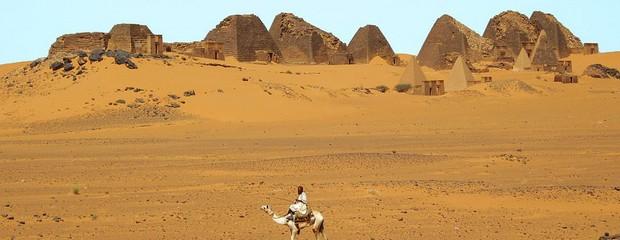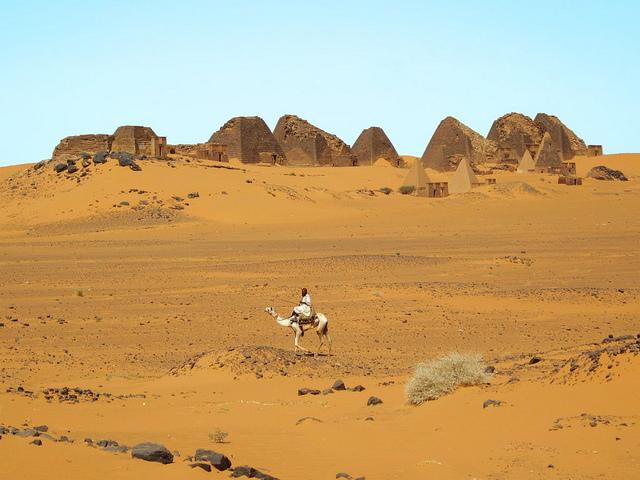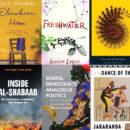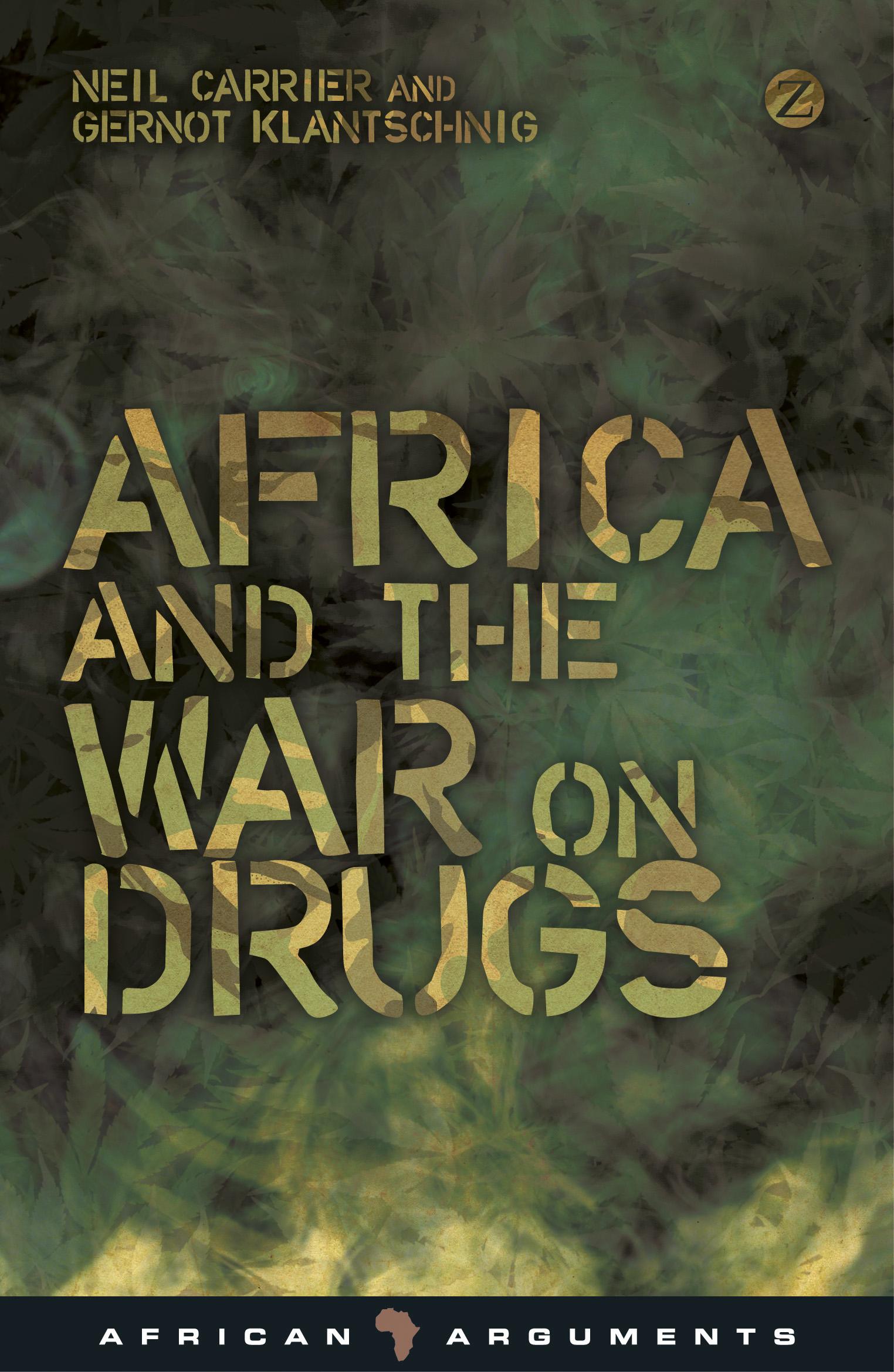Coming to terms with Sudan’s legacy of slavery

Among northern Sudanese families, slavery continues to be a taboo subject, even though this history has shaped the Sudans for centuries.

The Sudans lie at the crossroads of the Middle East and sub-Saharan Africa and of Islam and Christianity. Credit: David Stanley.
In the 1940s, my grandfather wrote a poem about his mother. She was from what was then southern Sudan. She was brought to Khartoum as a slave, where she was eventually married off to her Upper Egyptian master, a wealthy landowner who had settled in the city. She gave birth to several children, one of whom was my grandfather.
In the poem, my grandfather re-imagines the moment of his mother’s capture in a slave raid in southern Sudan. Though he himself had been born in Khartoum – inheriting his father’s name and elite status as well as his religion (Islam) and his language (Arabic) – he was open about acknowledging his mother’s slave ancestry. This was quite unusual. Among northern Sudanese families, especially around Khartoum, slavery was and continues to be a taboo subject, because to acknowledge slave descent in one’s bloodline is to acknowledge one’s lineage is “tainted”.
But slavery, of course, is a defining feature of the region’s history, dating back thousands of years. Under Turco-Egyptian rule of Sudan beginning in the 1820s, the practice was entrenched along a north-south axis, with slave raids taking place in southern Sudan and slaves transported to Egypt and the Ottoman empire. Under Mahdi rule between 1885-1898, the trade flourished. Anglo-Egyptian colonial authorities (who ruled Sudan between 1898 and 1956 under the Anglo-Egyptian Condominium) officially abolished the practice in 1924, though it continued, unofficially, for decades after.
I am intrigued by this history not only because it has shaped my own family heritage, but also because it sheds light on some of the inequalities that have characterised the relationship between the two Sudans. In the north, to this day, the derogatory term for a South Sudanese is ‘abid – literally, “slave”. This not only points to the kind of discrimination that South Sudanese have had to suffer at the hands of northerners, it also indicates the extent to which the legacy of slavery continued to inform structures of economic, political and social inequality long after the official abolishment of the practice in 1924, and the country’s independence in 1956. It provides a context for why most South Sudanese felt that there was no place for them in a larger Sudan in which they would always be looked upon as worse than second-class citizens.
Indeed, there were claims that the practice was revived during the north-south civil war, though whether the practice constituted a directed policy of “enslavement” overseen by the Khartoum government against southern Sudanese, or whether it constituted war-related hostage taking, has been a subject of controversy. On one side, groups (primarily of a Christian bent), publicised the plight of the southern Sudanese they said were taken as slaves, particularly during the peak of the war in the 1980s-1990s. They organised slave redemption drives targeted at freeing slaves through monetary compensation. On the other side, activists, researchers and others argued that these slave redemption drives made things worse by creating a market for slaves where there hadn’t been one to begin with. Yes, hostages were taken during the war, but “hostage taking”, argued those like Sudan specialist Alex de Waal, was a very different thing from slavery. These more sceptical voices also questioned whether there was indeed a coherent government policy underpinning the practice, something that the slave liberationist groups claimed.
This controversy around slavery during the Sudanese civil war is an example of how difficult it often is to separate fact from fiction when talking about the two Sudans. At the crossroads of the Arab Middle East and Africa, and of Islam, Christianity and indigenous religions, the Sudans channel all kinds of conflicting agendas and narratives, both locally and internationally.
The Sudans, however, always prove to be more complicated than any of these narratives assert them to be. Which brings me back to my own family history, for it is a history that sets into relief the complexity of identity in the region. The significance of my great-grandmother’s legacy lies in the fact that it reflects the historical division between north and south, while also complicating it. On the one hand, her slavery is emblematic of the exploitation that many South Sudanese (and other marginalised groups) have suffered at the hands of ruling elites – whether colonial or postcolonial. On the other hand, as a progenitor of a “northern” Sudanese family, her legacy also suggests that the easy distinctions that are often drawn between groups (northerners and southerners, Arabs and Africans, and so on), are not always as simple or straightforward as they may appear at first glance. Though my grandfather did not inherit his mother’s southern Sudanese name, or her religion, or even her language, he was her son – something which no amount of patriarchal cultural “cleansing” could erase.
It is for this reason that it is necessary to remember and reclaim stories such as my great-grandmother’s. These stories allow us both to reconstruct historical legacies of oppression, and to deconstruct the myths of cultural and ethnic purity and “difference” on the basis of which much of this oppression has been justified in the region.
Fatin Abbas is one of the 2015 winners of a Morland Writing Scholarship which will allow her to research and write a book on contemporary Sudanese identity.





the problem of Sudan from the beginning is denial of facts related to who we are despite the fact that we are Black People and the name Sudan means Land of Blacks we ignored that truth and started searching for false identities and start cheating ourselves that we are Arab we hosted Arabs in Our lands so Arab are supposed to integrate into us not the vice versa.
It’s interesting to read an account like this and it serves as a reminder, on the one hand that not everything bad in Africa comes from Europe and on the other hand that bad things can sometimes also lead to good things. I think it is important to think about the different cultures in Africa and the implications of that for development in a wider perspective. Have tried to do that in my own longread – see https://africanations.wordpress.com/2015/12/26/african-identities-a-new-perspective/
I tried hard to understand her point but I failed!.
Slavery was a ligitmate trade for thousands of years in all Civilizations and defintley we have millions of such stories .
Let’s make it simple and agree on equal rights & responsibilties and move forward and stop playing with this burned card .
BTW, The US didn’t change its constitution and today we have a black president for two terms parallel with Oscar awards boycotting by African Americans due to discrimination against colored actors/actresses.
As I have said to a “Sudan Expert”slavery was never entrenched in the fabric of society the way it was in the USA,mainly because there were no plantations and slave labour was never the pillar of the economy.It was domestic service ,mainly and slaves were absorbed in the families as this excellent example demonstrates.
On the other hand ,there is no shame in being black but having Arabic culture and language.Most of those who criticise us are not advocates of African languages or culture.In many cases they are proud of having lost their names and culture to the colonial missionaries.
After independence the word slave was outlawed.With education it is now only used by very few illiterate people.To imply that it is widespread or general is inaccurate and unfair.
The allegations of some evangelical fanatics that slavery continued during the civil war was part of the anti-Sudanese propaganda.It was thoroughly discredited until the SPLM itself asked those organising the fake redemption campaigns to stop.
There are Black Arabs across the Red Sea .Some were among the first disciples of the prophet(SAA Wa Sallam).
Anti- Arab sentiment is also inspired by the wish to reduce sympathy in the Sudan for the occupied Palestinians.This is misguided because support for the anti-colonial struggle in Palestine is not restricted to Arabs or Muslims.It is now a growing international trend that is supported by many peace -loving Israelis.
Of course we are mixed ;with South Sudanese,West African and Nuba mountain blood which we cant trace and about which most of us know nothing.This is a source of strength not weakness.The Arabs of the Middle East and North Africa are also mixed as the pioneering Egyptian literary and social critic Taha Hussein has argued.The concept of racial purity has contributed to the atrocities in South Sudan.Those who advocate it in Israel are the extreme semi-fascist politicians(who oppose Arab-Israeli intermarriage).The idea of Aryan purity was fashionable in Hitler’s Germany.
I have met people whose family members had been kidnapped and enslaved in the north. So no Sudan expert (white or otherwise) is going to revise this one for me. Slavery has been going on forever and seems determined to continue. apparently some in Sudan did not get the memo about the peacefulness of their religion, because they use it to dehumanise everyone they decide to “otherize” whether Christian “apostate” “trouser wearing lady” or non -“Arab”
those who have won the lottery of being the slave raiding communities/ races or enjoyed the trappings of such societies really need to stop justifying the “benigness” of their own slave practices(and this point in no way directed to the writer). Slavery is slavery and the misery and pain of it is the denial of the freedom of a persons physical integrity, denying their innate self will and debasing their human spirit, I believe only death is worse, and some might argue that death would be a welcome relief. It doesn’t matter if the slave girl only washed dishes, took beatings and quenched the lascivious fires of the human being that presumed to own her. Slavery is slavery no matter how “well” the slave is treated. Let us understand that, please! There are too many ‘experts’ who have no idea how horribly the shoe pinches on the other foot.Too many experts who desperately want it ‘to be in the past’ despite the widespread racism, despite the contempt for black skinned people borne out of the enslavement of black people through the centuries(enslavement for which, we black people are today often blamed by the descendants of the enslavers).There are Too many experts unable or unwilling to listen to or acknowledge the injury to the societies that were reduced to slave harvesting grounds and hence continuing devaluation of black human lives today, across all continents , but especially amongst former (and current) slaving societies. These experts manage to shut the debate whilst attempting to talk about this painful and emotive subject.
The conversation cannot properly start until the full unqualified acknowledgment of the wrong, the purely evil nature of the wrong (and let’s not forget this unfortunate evil continues today)and the harm it does both to the enslaved and the enslaver.
Slavery is evil and the nations that practise or justify it need to take a long hard look at their own loved ones and ask themselves: would you be feel whole or happy if someone else owned them? If it’s no for you, then it’s no for everyone else.
Slavery is evil.It is also economically and politically linked.If we ,as part of humanity,are to move on we need the proper legal framework to be in place(this process started since Wilberforce and led to Whites voting for a black US President twice).If we try to keep wounds open ,promote racial tension in the name of victimhood ,we will only drown in toxic rhetoric.There are still KKK in the US but they have been defeated and comprehensively side-lined.
I know that CSI and other evangelicals claim that slavery is still an issue in the Sudan. This is part of a politically -motivated campaign to demonise the Sudan without evidence .
Islam endorses and encourages slavery as we see again and anew in the horrid life of ISIS in Syria and Iran.
No Moslem can hide behind ancient history and pretend that ‘someone else’ is responsible for the horrid practices of Islam when they are happening here and now!! Ask the Yzidri women and children who have become sex slaves in Raqqa.
To speak the truth may cause tension and inflame passion, but since it is the truth, it must be dealt with, eh?
This is inaccurate.In US history some slave owners were supported by clerics who quoted the bible to justify slavery.They have distorted and twisted the spirit of Christianity with a flawed interpretation.
ISIS is not a standard bearer of the best interpretation of Islam.They are an aberration,an isolated minority the likes of which exist in all religions.